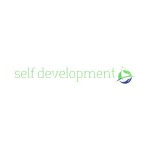Emotional intelligence (EI) is the ability to recognize, understand, and manage our own emotions, as well as the emotions of others. This skill is essential in both personal and professional contexts, as it helps us to build better relationships, make informed decisions, and manage stress and conflicts effectively. In this article, we will explore the key components of emotional intelligence and provide practical tips for developing your emotional skills.
The Four Components of Emotional Intelligence
1.Self-awareness: This involves understanding your own emotions, strengths, and limitations. By being aware of your own emotions, you can identify triggers that may cause you to react in certain ways, and learn to manage your emotions effectively. Self-awareness also involves recognizing your strengths and weaknesses, and using this information to make informed decisions and set realistic goals.
2.Self-regulation: This refers to the ability to manage your emotions, thoughts, and behaviors in a way that is consistent with your values and goals. By regulating your emotions, you can avoid impulsive or destructive behavior, and respond to challenges in a constructive and effective manner.
3.Social awareness: This involves understanding the emotions, needs, and perspectives of others. By being socially aware, you can communicate effectively, build stronger relationships, and respond to the needs of others in a more empathetic and compassionate way.
4.Relationship management: This refers to the ability to build and maintain healthy relationships with others. By managing relationships effectively, you can communicate clearly, resolve conflicts in a constructive manner, and build trust and respect with others.
Developing Your Emotional Skills
Developing emotional intelligence requires practice and commitment. Here are some practical tips for improving your emotional skills:
1.Practice self-reflection: Take time to reflect on your emotions, thoughts, and behaviors. Identify your triggers, and think about how you can manage your emotions in a more effective way.
2.Practice mindfulness: Mindfulness involves paying attention to the present moment without judgment. By practicing mindfulness, you can become more aware of your emotions and thoughts, and learn to manage them in a more effective way.
3.Build empathy: Empathy involves understanding the emotions and perspectives of others. Practice active listening, and try to put yourself in other people's shoes.
4.Practice communication: Effective communication is essential for building strong relationships. Practice active listening, and learn to express your thoughts and feelings in a clear and constructive way.
5.Seek feedback: Ask for feedback from others, and use this information to improve your emotional skills. Be open to constructive criticism, and use it as an opportunity to learn and grow.
In conclusion:
emotional intelligence is a key skill for success in both personal and professional contexts. By understanding and developing your emotional skills, you can build stronger relationships, make informed decisions, and manage stress and conflicts effectively. Practice self-awareness, self-regulation, social awareness, and relationship management, and commit to ongoing growth and development.
thanks for reading and supporting me have a nice day
and congratulations on practicing what you have read today, good luck in your business



You must be logged in to post a comment.